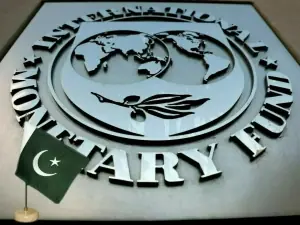Covid cash transfers: BISP made ‘irregular payments of Rs1.84b’
5 min readSardar Sikander Shaheen
ISLAMABAD: The management of the Benazir Income Support Programme (BISP) made irregular payments of 1.84 billion rupees to a total of 153,369 individuals comprising 86,211 government employees/pensioners and 67,158 spouses of government employees/pensioners, in terms of Covid cash transfers, in the financial year 2019-20.
This has been revealed by the Auditor General of Pakistan (AGP) in its special audit on the expenditure incurred on Covid-19 by the federal government.
The report covers the audit year 2020-21.
According to the AGP, one of the profiling checks approved by the federal cabinet and the BISP Board for both regular and Covid-19 cash transfers was to block government employees and their spouses from receiving these payments.
Audit observed that amounts of Rs1,034.532 million and Rs805.896 million were released to 86,211 government employees/pensioners and to the spouses of 67,158 government employees/ pensioners (from grade 1 to 20, at the rate of Rs12,000, each), respectively, which is irregular and recoverable.
Audit is of the view that since the findings are based only on record of federal and provincial government employees (made available to audit), the number of cases would have been increased if the employee’s information of MAG (Military Accountant General), semi-autonomous bodies, self-accounting entities and others was provided to audit.
Moreover, the spouse findings were based only on spouse detail of 5.619 million beneficiaries made available to audit.
The number of cases would have been increased, if spouse information of all 15 million beneficiaries was provided to audit.
In response to the audit observation, the BISP said, it has taken initiative on its own to exclude all government servants receiving benefits from the BISP, and that it wrote to all government/semi-government, SOEs (State Owned Enterprises)— Defence Division, EOBI (Employees’ Old-Age Benefits Institution) and the PTCL (Pakistan Telecommunication Company Limited) for sharing data of their employees.
The NADRA (National Database and Registration Authority) was entrusted with the task to run profiling on the basis of received data to exclude government servants under EECTP (Ehsaas Emergency Cash Transfer Programme).
The BISP said the data of abovementioned employees was taken by audit on their own which was not earlier shared by the CGA (Controller General of Accounts) or any other agency with the BISP, which, the BISP said, could be the main reason that abovementioned government employees were included in the programme.
As per the approval of cabinet and the BISP Board, only employees in service, not pensioners, were required to be excluded from the programme.
The BISP said it has already written to all government, semi-government, SOEs for sharing data of their employees.
“With the help of latest employee’s data shared by audit, BISP will not only recover the paid amount but also initiate legal proceeding against these employees following the steps taken earlier,” it said.
As far as the NADRA is concerned, the BISP has already obtained the data of the NADRA employees to run the profiling under the EECTP, according to the BISP. Since recent data of serving government employees obtained by the audit was not available with the BISP at the time of processing the EECTP, these government employees benefited from the programme.
The BISP said it has already written letters to all concerned government departments for the recovery of amount from these employees who benefited from the EECTP and requested to initiate legal proceedings.
According to audit, the response of the BISP is acceptable to the extent that letters have been written to the respective competent authorities for recovery of amount.
However, the AGP said, the para will stand till recovery of the said amount from government employees and policy decision by competent authority regarding pensioners.
In addition, audit observed that a total number of 1,347 beneficiaries (amount involved Rs16.164 million) were enrolled/paid cash transfers who (or their spouses) were high-income beneficiaries as per data shared by the FBR (Federal Board of Revenue) with the BISP. Thus, the paid amount stands irregular.
The BISP replied that during the emergency cash transfer, the BISP had written the letter to the FBR for provision of filer data and upon receiving the same, used as a profiling check on all further data processing.
According to the BISP, since the NADRA already processed many records before receiving the FBR data— some filers benefited from the EECTP, due to late sharing of data by the FBR with the NADRA. The records highlighted by audit are those processed before receiving the data from the FBR.
“BISP in that emergency situation could not wait for receiving data from all the departments before initiating the payments,” the BISP said in its response to audit.
The Departmental Accounts Committee (DAC), in its meetings held December last year and January this year, directed the BISP to provide correspondence to the audit in chronological order with proof and block beneficiaries. The DAC also recommended that the FBR “be approached for recovery, if possible.”
The BISP responded to the DAC that approval of the BISP Board for obtaining taxpayer list was taken in December 2019.
The related data was shared with the NADRA before start of payment, so it was the responsibility of the NADRA to block such beneficiaries.
The audit recommends that the BISP shall get detailed particulars of such filers having taxable income higher than Rs50,000 per month and prepare a comprehensive case for the FIA (Federal Investigation Agency) legal action against such individuals.
The article was originally published in Business Recorder.
For the latest news, follow us on Twitter @Aaj_Urdu. We are also on Facebook, Instagram and YouTube.

























Comments are closed on this story.